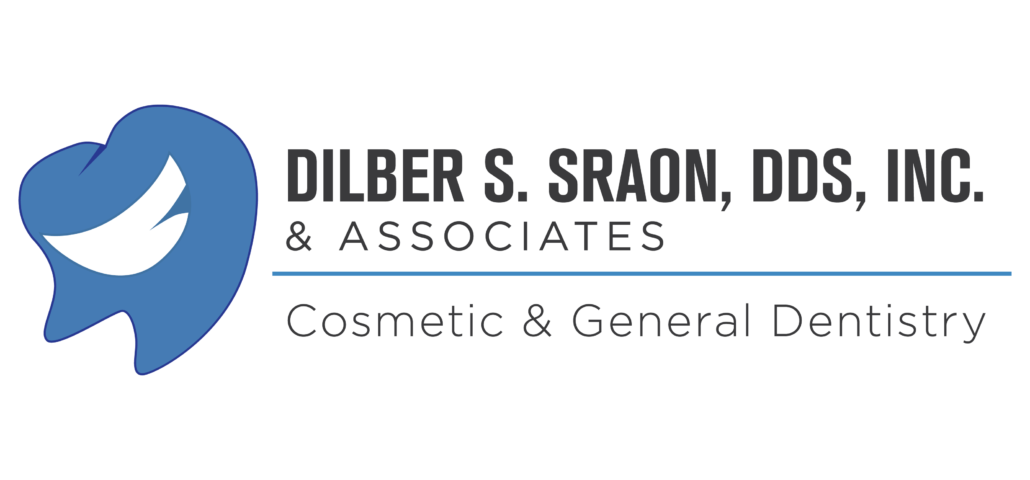It could be a toothache in the middle of the night, a dislodged filling, or an accident which causes a broken tooth. Whatever it is, Dilber Sraon, DDS and his practice are here to help with their professional dental services.
We provide emergency dental services to anyone who may need it.
We can diagnose the problem, provide immediate emergency treatment, and even prescribe painkillers or other medications. If you are in need of emergency dental treatment and are near San Jose, please contact our office.
If your dentist is unavailable.
You may visit our office today to get treatment if your regular dentist is unavailable. We will send your dentist a report of your visit including the state of your oral health, assessments we made, and any treatments we performed.
If you don’t have your own dentist.
If you don’t have a regular dentist and you require subsequent visits, you may get your follow up treatments at our office.
If you need emergency dental service or additional treatment, feel free to contact our office at 408.227.1404, and we’ll be happy to assist you.
Tips to Follow
Knocked Out Tooth
Handle the tooth carefully and don’t touch the root as it is delicate. Hold the tooth by the crown and rinse off the root in water if it’s dirty. Do not scrub, wipe it or remove any attached tissue fragments. If possible, gently slide the tooth in its socket and hold it. It should slip right in. Ensure it’s facing the right way, don’t try to force it. If that isn’t possible, put the tooth in a cup of milk and call our practice as quickly as possible. If you don’t have milk, substitute water. The most important thing is to keep the tooth moist and to bring it with you to our office.
Broken Tooth
You will need immediate attention, so call our practice immediately. Rinse your mouth with warm water to clean the area. Apply pressure with a gauze for ten minutes to stop the bleeding. If that doesn’t work, use a teabag and apply pressure. Then use cold compresses on the area to keep any swelling down.
Toothache
Ensure your mouth is clean by rinsing it with warm water. Use either dental floss or an interdental cleaner to remove any lodged food or other debris. Never press aspirin or any painkiller against the gums near to the toothache because it may burn the gum tissue. If pain persists, call our dental practice.
Objects Caught Between Teeth
If possible, try to gently remove the object with dental floss or a dental pick. Never use a sharp instrument to remove any object that is stuck between your teeth. Floss how you normally would — slide up and down three times until the object is removed. Take care to floss gently so you don’t cut your gums. If you can’t dislodge the object with the suggested tips, contact our dental practice.
Bitten Lip or Tongue
Rinse mouth with salt water. Clean the area gently with a cloth and apply cold compresses if there is any swelling. If the bleeding doesn’t stop, visit a hospital immediately
Cracked Tooth
You may have a cracked tooth if:
- You feel a sharp pain when you bite down
- You avoid certain foods because they cause pain in your tooth
- You chew on one side of your mouth to avoid pain
If these symptoms sound familiar, you may have a cracked tooth and it is advised you get it checked out. Please visit our office if these symptoms sound familiar.
What causes a tooth to crack?
Several factors may cause a cracked tooth:
- Chewing on hard objects such as ice, or nuts
- An accident such as a hard blow to the mouth
- Uneven chewing pressure
- Stress on a tooth
- Wear and tear causing a loss of part of the tooth
- Exposure to temperature extremes, such as eating hot food then drinking ice water
- Brittleness of tooth which have undergone root canal treatment
How do you know if a tooth is cracked?
The best way to know is by visiting our dental practice. Dr. Sraon can then look for the telltale signs of a tooth being cracked.
Cracks are often invisible and therefore it may be difficult to tell if a tooth is cracked by visual inspection. Even x-rays are sometimes unable to find a crack in a tooth. Because cracks are often invisible, our dentist would likely need to inquire about other similar issues that come with cracks.
Why does a cracked tooth hurt?
To understand why a cracked tooth hurts you need to understand the structure of the tooth. Under the enamel, there is a hard layer called the dentin, and a soft layer called the pulp. The pulp is a soft tissue that contains the tooth’s nerves and blood vessels.
A cracked tooth may hurt because the pressure of biting causes the crack to open, irritating the pulp. When you stop biting, the pressure is released and you feel a sharp pain as the crack quickly closes. It’s common for a tooth to become sensitive to temperature extremes if the crack irritates the pulp. In the worst cases, the pulp can become damaged or diseased, requiring a root canal to save the tooth.
How is a cracked tooth treated?
Treatments for the crack depend on the location and severity. Tiny cracks are common and usually don’t cause problems. Possible treatments may be bonding, crowning or root canal treatment. Extracting the tooth is a last resort and only used if the tooth cannot be saved by other procedures.
Preventing cracks
Because cracks can come from many different sources, regular dental checkups are a good way to catch them before they require treatment. Additionally, avoiding sudden temperature extremes such as sipping hot tea and ice water immediately after each other is advised.
Please contact Dilber Sraon DDS at 408.227.1404 for all Dental Emergencies.

